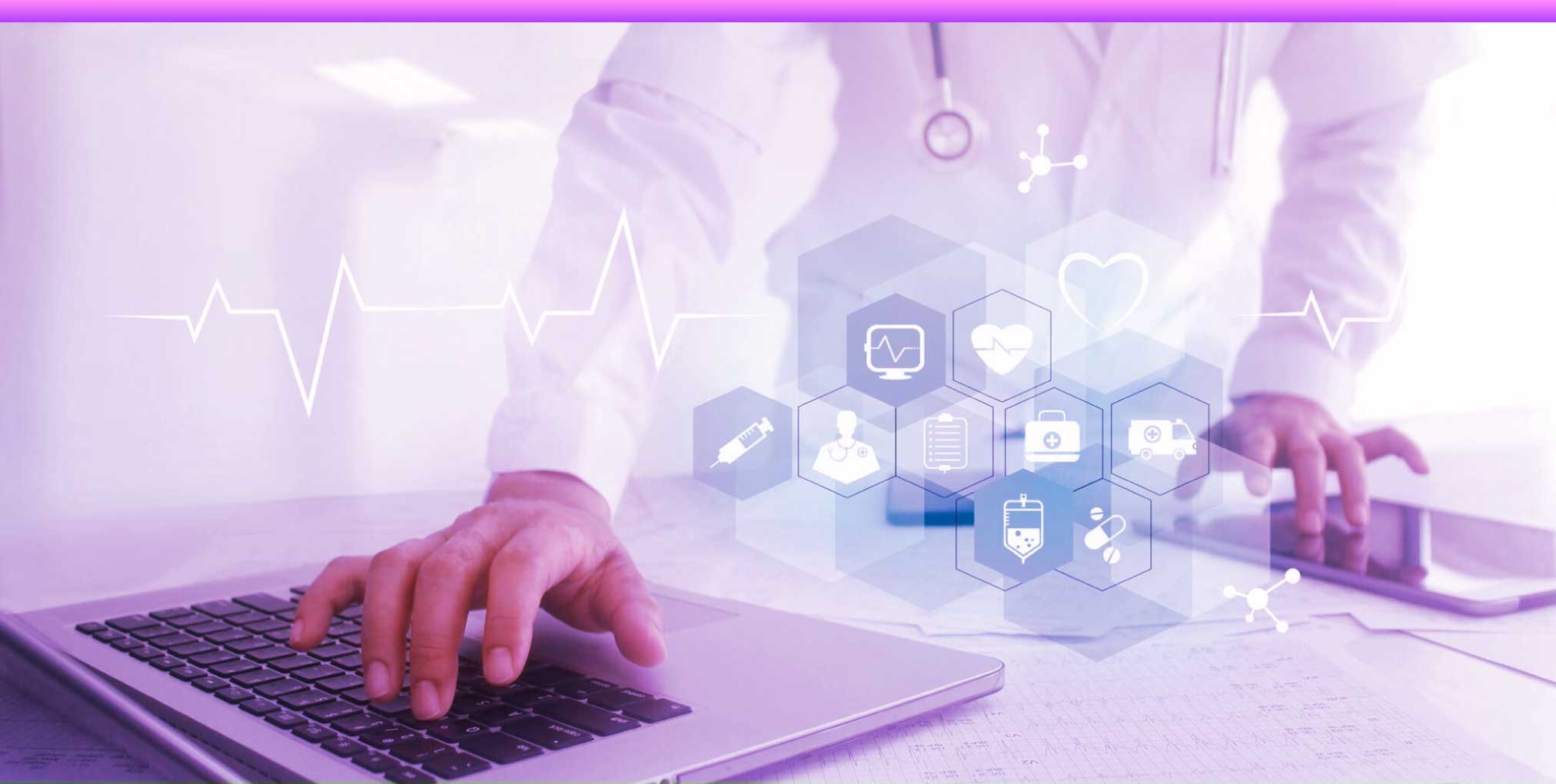

January 12, 2024
Top 8 Digital Health Tools You Need to Succeed in Healthcare
In recent years, the field of digital health has surged, driven by awareness of cutting-edge technologies such as AI. Today, we will see essential tools that can make a real difference in healthcare. These 8 digital health tools are absolute must-haves for success in the industry. Join us on this journey at the intersection of AI and Digital Health, where innovation meets patient care for a brighter, healthier future!
What Is Digital Health?
Digital health means using technology to make healthcare better. It includes using computers, phones, and other gadgets to improve how we take care of our health. This can mean better ways to check and treat illnesses, monitor patients, and manage overall health. People worldwide are starting to use digital health because it helps doctors and patients in many ways. So, it’s like bringing digital technology into healthcare to make things work smarter and more accessible for everyone involved.
Top 8 Digital Health Tools
Before naming the top 8 tools, I want to address the question of what digital health tools are. Let’s understand that digital health tools are technologies like apps and devices designed to improve healthcare. These tools make tasks like monitoring health and managing medical information more efficient. They use the power of technology to enhance overall well-being.
1: Electronic Health Records (EHR)

Electronic Health Records (EHR) Systems revolutionize healthcare by centralizing patient health records. These systems improve accessibility, ensuring smooth information sharing among healthcare professionals. This information can be shared using network-connected systems or other information exchanges among healthcare settings.
EHRs help primary care physicians, specialists, and nurses collaborate efficiently while reducing the paperwork burden. This digital tool promotes healthcare delivery efficiency and contributes to comprehensive and well-coordinated patient care.
EHRs encompass diverse data, such as demographics, medical history, medications, allergies, immunization status, lab results, radiology images, vital signs, personal details like age and weight, and billing information.
Read More: Top 10 Ways Electronic Health Records (EHR) Improve Patient Care
2: Telehealth and Telemedicine Platforms
Telehealth and Telemedicine Platforms are vital digital health tools for patients, promoting remote healthcare access. Telehealth involves using telecom technology to provide healthcare services and information from a distance. It includes remote consultations, advice, education, monitoring, and even admitting patients without being physically present.
It helps when things like living far away, lack of transportation, or health emergencies make it hard to get care. Telehealth fills these gaps and supports online learning, meetings, and information sharing among healthcare professionals.
Telehealth tools facilitate convenient video calls and remote health condition monitoring. Patients can get medical advice from the comfort of their homes, reducing travel hassles. These tools exemplify the transformative impact of digital health on patient-centered care.
3: Health Tracking Apps

Health tracking apps are digital health tools designed to monitor and manage various aspects of an individual’s well-being. These applications, often accessible on smartphones, allow users to track metrics such as physical activity, nutrition, sleep patterns, and overall fitness. They provide a user-friendly interface to log and analyze health-related data, offering insights into personal habits and progress.
Health tracking apps contribute to a more proactive approach to wellness, enabling users to make informed decisions about their lifestyle and health behaviors for improved overall health.
4: AI in Diagnostics
Artificial Intelligence (AI) in Diagnostics is a groundbreaking digital health tool transforming medical analysis. By assisting in interpreting medical images, pathology slides, and diagnostic data, AI enhances both the speed and accuracy of diagnoses.
Using machine learning techniques, AI can aid in spotting irregularities and finding fractures, tumors, or other health issues. It also offers precise measurements, speeding up the accuracy of medical diagnoses.
AI in Diagnostics holds immense promise in revolutionizing healthcare, offering a more advanced approach to diagnostic procedures for improved patient outcomes.
5: Mental Health Apps
Digital mental health tools are vital and gaining momentum in today’s wellness landscape. As awareness of mental health grows, these digital tools provide essential support. Their accessibility and user-friendly interfaces contribute to their increasing popularity, allowing individuals to prioritize and manage their emotional well-being effectively.
Mental health apps offer a range of features, including guided meditation, mood tracking, and access to mental health resources. By providing convenient and accessible tools, they empower individuals to manage stress, anxiety, and other mental health concerns. The momentum behind these tools reflects a significant shift toward recognizing the importance of mental health care.
Read More: How to Use AI Chatbots in Mental Healthcare Ethically
6: Digital Health Tools for Diabetes

Digital health tools for diabetes have evolved significantly. With advancements like blood glucose meters, continuous glucose monitoring (CGM), and state-of-the-art insulin pumps, managing diabetes has become more user-friendly and less invasive. The array of options ensures individuals can find what works best for them.
This progress in diabetes technology enhances ease of use and contributes to effective diabetes management. The variety of tools reflects a commitment to providing personalized solutions. This shows the positive impact of digital health on the lives of those managing diabetes.
7: Health Information Exchange (HIE) Platforms
Health Information Exchanges (HIEs) are vital digital health tools that empower healthcare providers to securely access and exchange patients’ medical information electronically. Using Health Information Technology (HIT), these exchanges enable a thorough review of a patient’s medical history and past procedures.
HIEs play a crucial role in bringing interoperability within healthcare, ensuring the secure and electronic sharing of patient information. This results in an up-to-date, comprehensive patient record, which improves care quality and patient outcomes.
8: Chatbots and Virtual Assistants

Chatbots and Virtual Assistants are prime examples of digital health tools designed to provide automated responses to health-related queries. These intelligent systems provide:
- Automation.
- Assisting users in appointment scheduling.
- Offering information about medications.
- Providing primary health advice.
The market for healthcare chatbots is expected to grow, reaching $944.65 million by 2032, up from $230.28 million in 2023. Their user-friendly interfaces and 24/7 availability make them valuable resources for quick and accessible support. Chatbots make health experiences efficient and responsive for users by improving communication and addressing common health inquiries.
Xeven Solutions Digital Health Advancements
For cutting-edge digital health solutions, turn to Xeven Solutions! As an AI development and services company dedicated to healthcare, we’re your go-to for innovative and effective solutions. Trust us to enhance your health experience with advanced technology. Choose Xeven Solutions for a healthier, smarter tomorrow.
Conclusion
In your healthcare journey, these top 8 digital health tools for patients are your go-to companions. Whether accessing medical records or finding support for mental well-being, these tools offer valuable assistance. Integrating these tools will make health management accessible and responsive to your needs. Let the power of digital health tools shape a smooth and empowered path toward overall well-being.








